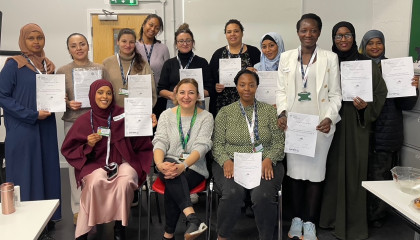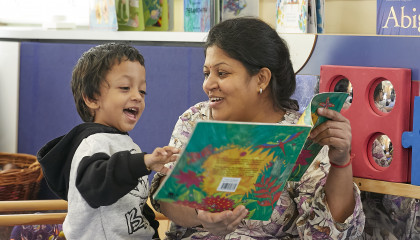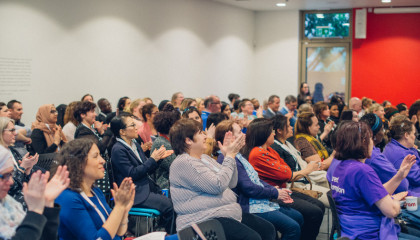You are here: What we can learn from innovation in childcare from across the world
It’s just one of those mornings. You and your partner need to get yourselves ready for work, your eldest child off to school with a gym kit and lunch money and your youngest child to nursery, who has helpfully just decided to throw their breakfast on the floor. To add to this, your mum did not sleep well last night and needs extra love and attention today.
This is a regular reality for many busy families across the country. For such families, the idea of a centre where your youngest children could play and be educated in the same location where your mother can get the residential care she needs might sound too good to be true. In Japan, however, the Toyama model of intergenerational care is making this stress relieving solution for families a reality. Children are able to spend more time with their grandparents or loved ones and families spend less time travelling between different locations. An added – and perhaps unsurprising – bonus of intergenerational centres is that they also help to boost the mood of older residents.
This is just one example of many innovative approaches to childcare that have been used internationally, highlighted by the Family and Childcare Trust’s new research - International childcare comparisons - funded by the Bernard van Leer Foundation. Not only do these new approaches seek to meet the changing needs of families, some of them recognise that childcare does not exist in isolation as a social issue and take into account the effects of a poor system echoing throughout the lives of children and their families.
In 2002, New Zealand took the decision to place early education on the same level of importance as primary education. As a result, all three and four year olds are now entitled to 20 hours free childcare, regardless of family income. In New Zealand it is believed that a well-funded early education system that makes sure all children are receiving high quality care that prepares them for school and supports parents to work, has the potential to save the government money down the line and boost the economy.
New Zealand’s approach might not be right for every country. Australia has introduced a pilot programme which subsidises families to use nannies, as people living in remote areas struggle to reach group childcare. Respecting local culture and the needs of communities is therefore vital for creating a system that works effectively. However, the basic idea of creating a cohesive childcare system still stands. The alternative is ad hoc policy making, which creates complicated systems that can be hard to navigate for many families.
International childcare comparisons demonstrates that with good planning, some countries have been able to make significant changes to their childcare systems in a relatively short period of time. This shows that we do not have to settle for the status quo, or only hope to make small, piecemeal changes to the way our system works. More dramatic change is possible, but like many policy areas, it works best when decision makers take a step back and look at the big picture. Time needs to be taken to understand what the population needs from a childcare system and how this impacts other areas of society, in order to create a robust plan of action.
In short, these innovative approaches give us plenty of reasons to be optimistic about the potential for change and will hopefully spark some interesting debate on what we want from childcare and early education here in Britain.
Note: This report was prepared to support Israel’s Tel Aviv-Yafo Municipality Innovation Team, supported by Bloomberg Philanthropies, in their decisions about childcare provision in their area. It was funded by the Bernard van Leer Foundation.
Since its inception, the Bernard van Leer Foundation has worked in more than 50 countries and invested over half a billion dollars toward their mission: to improve opportunities for young children growing up in circumstances of social and economic disadvantage.

More from our blog
Sign up to our newsletter
Get the latest news, research and resources from Coram Family and Childcare




